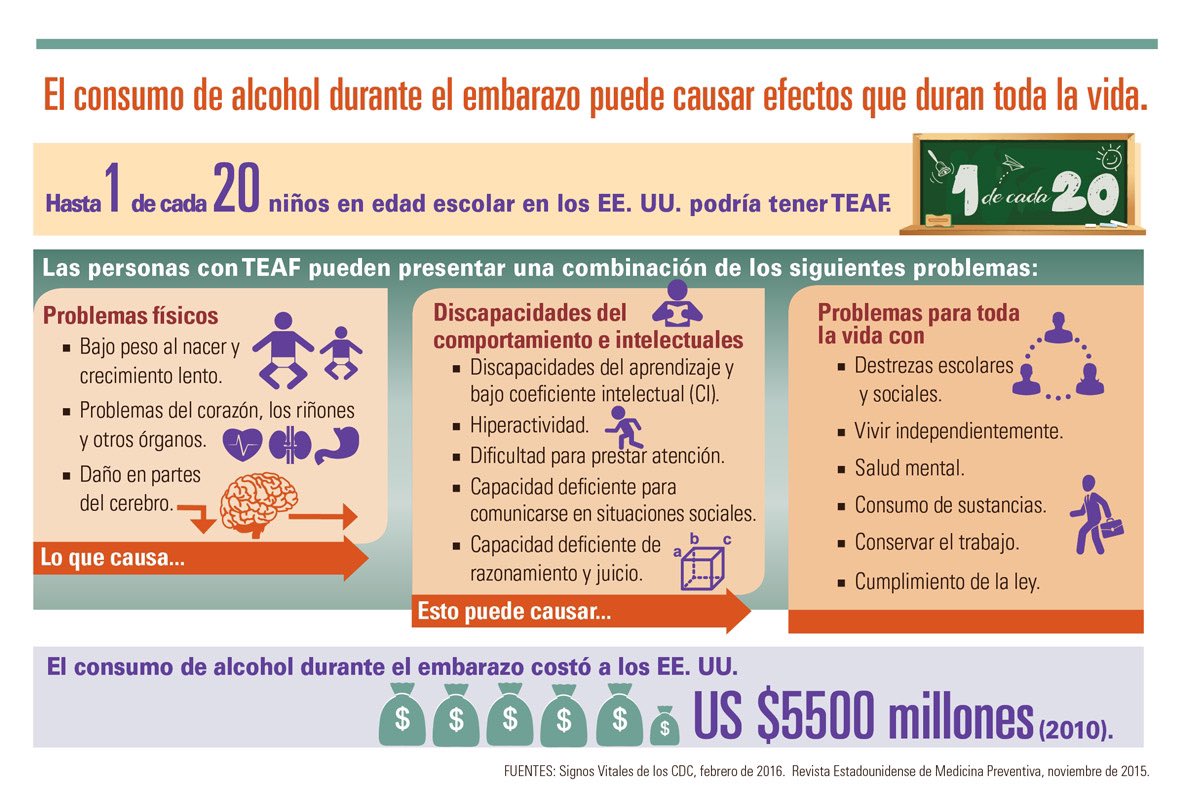Alcohol is in Spain "an important risk factor for the burden of disease and mortality, in a social context of normalisation and trivialisation of consumption", states the Monograph alcohol 2021. Consumption and consequences, by the Spanish Observatory on Drugs and Addictions, published by the Ministry of Health.
Alcohol is "by far the psychoactive substance most consumed by the population"; its impact on health increases with consumption, but "there is no such thing as a risk-free level", something that "is not known by the majority of the general population or, on occasions, by the health sector itself", adds this exhaustive report, drawn up taking into account surveys of the population and an in-depth analysis of the scientific evidence gathered over the last decade.
What is the effect of alcohol on health?
In Spain, alcohol consumption is the second risk factor for health loss (Disability Adjusted Life Years - DALYs) in women, and the fifth in men (data from the Alcohol 2021 Monograph). It produced 15,489 deaths annually during the period 2010-2017, 74 % in men and 55.7 % premature (before the age of 75).
The most frequent causes of alcohol-attributable deaths in the overall population aged 15 and over were cancer, digestive diseases and circulatory diseases.
Is it also harmful to drink too little and with meals?
Epidemiologists Iñaki Galán, from the National Epidemiology Centre, and Manuel Franco, from the University of Alcalá de Henares, agree in their statements to SMC Spain: the evidence is growing that even light drinking has a negative impact.
This conclusion applies to all types of alcohol and even wine in food. Galán, author of a review on the subject, points out that associating wine with the Mediterranean diet, and therefore with healthy eating, "has strengthened the belief in the positive effects" of wine and beer; however, studies investigating the association of alcohol consumption with the Mediterranean dietary pattern "find that it is actually weak", says Galán.
These experts point out that the studies that allow such conclusions to be reached are difficult and lengthy. Avoiding confounding factors involves processing data on habits - diet, smoking, exercise, etc. - of hundreds of thousands of people over long periods of time. Hence, the evidence is slowly building up.
Yes, even light drinking causes cancer
"The answer to whether the link between alcohol consumption and cancer risk is clearly established is yes, there is sufficient evidence," Marina Pollán, director of the National Epidemiology Centre, tells SMC España. "The risk is proportional to the amount of alcohol ingested, being lower for moderate consumption - one glass of wine or one glass of beer a day for women and two glasses of wine or two glasses of beer a day for men - but the increased risk exists. As to whether it is less harmful to drink with or without food, "there is no evidence".
Nuria Malats, head of the Genetic and Molecular Epidemiology Group at the Spanish National Cancer Research Centre (CNIO), fully agrees.
They refer to the World Cancer Report 2020, from the International Agency for Research on Cancer (IARC), and to the latest revision of the European Code Against Cancer, which states: "Alcohol is the third leading risk factor for disease and mortality in Europe. (...) there is a causal relationship between alcohol consumption and cancers of the oral cavity, pharynx, larynx, oesophagus, liver, colorectal and female breast, even at low and moderate alcohol intakes (...) In Europe, an estimated 10 % of all cancers in men and 3 % in women are attributable to alcohol consumption'.
The American Institute for Cancer Research gives the same message: alcohol "is the third modifiable factor that increases the risk of cancer, after smoking and excess body weight. (...) The less alcohol you drink, the lower your risk of cancer. (...) To prevent cancer, the best way is not to drink at all".
Pollán reminds us that these institutions "only issue recommendations when the evidence is convincing".
Why is it preferable to talk about 'low-risk' rather than 'moderate' drinking?
"Terms referring to alcohol as moderate, prudent, social or responsible drinking are misleading and confusing and come more from marketing than from public health," says the report Limits of Low-Risk Alcohol Consumption. The concept of 'low-risk' drinking is preferred because there is no safe level of consumption.
How much is 'low-risk' drinking?
Taking into account that there is no zero risk, "low-risk consumption levels are considered to be those above which there is evidence of a significant increase in the risk of mortality," states the document Low Risk Alcohol Consumption Limits, drafted by some twenty experts from different Spanish hospitals and research centres and approved by the Public Health Commission in 2020.
Low risk' is two Standard Drinking Units (SBU) in men and one in women. One SBU is equivalent to 10g of alcohol, or the average content of a 100cc glass of 13-proof wine; a 250cc glass of 5-proof beer; 30cc of 40-proof spirits.
What about all that talk about moderate consumption being good for the heart?
It is considered an outdated paradigm. The Low-Risk Drinking Limits document states: "Between 2000-2014, meta-analyses and systematic reviews seemed to conclude a clear benefit of alcohol consumption on cardiovascular mortality (...) but many biases have been described that may justify this association (...) and the analyses that take them into account have largely modified the paradigm of the benefit of "moderate" alcohol consumption".
One possible source of error, explains Manuel Franco, is to overlook the fact that abstainers may be abstainers precisely because they have previous health problems, which in the statistics would place them among the sick.
On the other hand, "moderate' drinkers tend to be healthier and of higher socio-economic status, factors that are not always considered in studies," he says in Low-Risk Drinking Limits.
Is there really no benefit?
There are analyses that may show "a slight reduction in mortality from ischaemic heart disease", says Galán, but even taking these into account, "this cardiovascular benefit falls far short of offsetting mortality from all other causes (...).
Most individuals can reduce their coronary risk more safely and effectively by increasing physical activity and eating a healthy diet".
Therefore, "the idea of avoiding intensive consumption should be emphasised and the population should be told that the most beneficial thing for health would be not to consume alcohol or to do so in much lower doses than those accepted to date in our country", insists this epidemiologist.
In recent statements, the cardiologist Almudena Castro, head of the Cardiac Rehabilitation Unit at the Hospital Universitario La Paz (Madrid), and coordinator of the Diabetes and Obesity working group of the Spanish Society of Cardiology (SEC), said: "Alcohol increases the risk of developing alcoholic cardiomyopathy (pathology arising from alcohol abuse); it favours the appearance of a type of arrhythmia that is closely related to alcohol consumption, such as atrial fibrillation; apart from representing a risk of cancer, liver problems (liver cirrhosis), or producing brain alterations, addictions, and social and emotional problems".
No alcohol consumption is safe for pregnant women
The recommendation of 'zero consumption' is especially important in the case of pregnant women. Eva Bermejo, coordinator of the ECEMC (Spanish Collaborative Study of Congenital Malformations) and director of the Institute for Rare Diseases Research (IIER), reminds us that "alcohol consumption during pregnancy can cause unwanted effects that last a lifetime".

Fetal Alcohol Spectrum Disorders (FASD) include physical, behavioural and learning problems, and are "one of the few problems that are 100% preventable with a measure as simple and inexpensive as avoiding alcoholic beverages", she says.
As Bermejo explains to SMC Spain, the international consensus is to recommend "total avoidance of alcoholic beverages in pregnancy, extending this recommendation also to the period in which the woman could be pregnant but has not yet been able to confirm it, and to the breastfeeding period if she chooses to breastfeed. There is no amount of alcohol that can be considered safe during pregnancy and breastfeeding.
Bermejo believes that "there is a lack of education in this area".
Why does the myth of the positive effects of "moderate" consumption continue?
Among the biases identified in publications finding a protective effect of alcohol on cardiovascular health, the document Limits of Low-Risk Alcohol Consumption mentions the frequent conflicts of interest with industry: "Any funding by industry may influence the independence, objectivity, integrity and credibility of the studies".
In 2018 the US National Institutes of Health decided to cancel a $100 million study to investigate the effects of moderate alcohol consumption, after several voices warned that most of the funding came from industry.
What has the Spanish Society of Cardiology (SEC) said about daily wine consumption?
SMC Spain has received this response from the SEC: "From the Spanish Society of Cardiology (SEC), we support the Cardiovascular Health Strategy of the National Health System that has been approved. We know that the most important thing is prevention and, in this sense, to promote the Mediterranean diet and lifestyle. Fortunately, only in very specific cases in which the heart is very deteriorated, we have to recommend absolute abstinence from alcohol. Right now there is no evidence against having one or two glasses of wine a day. There is even data that may show that such moderate amounts of alcohol can be beneficial for cardiovascular health in most people. This is not to say that the SEC recommends excessive wine consumption".
The SEC supports these claims in scientific publications, in particular the 2017 review Wine and Cardiovascular Health: A Comprehensive Review. This work, however, has also been taken into account in the meta-analyses that have led to the Low-Risk Drinking Limits document, which insists that there is no zero risk.




